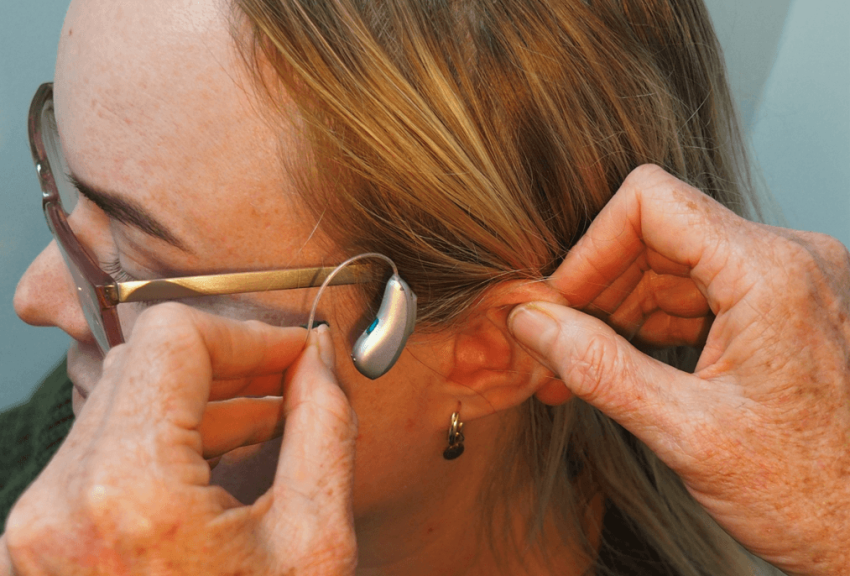The U.S. Food and Drug Administration (FDA) finally got something right when it finalized rules allowing over-the-counter (OTC) hearing aids. Only kidding. The FDA can’t take credit for OTC hearing aids. It took the FDA five years after Congress passed legislation in 2017 forcing the FDA to create a category of OTC hearing aids. About four years after the law was passed President Biden issued an executive order in July 2021 giving the FDA a deadline to act, since Congress’ deadline had already passed. More from the New York Times:
That step — which was supposed to take three years but required five — portended cheaper, high-quality hearing aids that people with mild to moderate hearing loss could buy online or at local pharmacies and big stores.
Tens of millions of seniors have hearing loss, which generally gets worse as they age. Estimates vary but of Americans with hearing loss under age 70, only 16% use a hearing aid. Of those age 70 and above with hearing loss, less than one-third (30%) wear hearing aids. There is evidence that hearing loss is correlated with cognitive decline as well. More from the New York Times:
The past year also brought renewed focus on the importance of treating hearing loss, which affects two-thirds of people over age 70. Researchers at Johns Hopkins University published the first randomized clinical trial showing that hearing aids could help reduce the pace of cognitive decline.
Some background: In 2020, the influential Lancet Commission on Dementia Prevention, Intervention and Care identified hearing loss as the greatest potentially modifiable risk factor for dementia.
Previous studies had demonstrated a link between hearing loss and cognitive decline, said Dr. Frank Lin, an otolaryngologist and epidemiologist at Johns Hopkins and lead author of the new research.
What the research found was that for people not at risk for dementia hearing aids seemed to make little difference. Yet, for poor people and minority patients, hearing aids made a significant difference reducing cognitive decline.
The problem is: prescription hearing aids require a visit to an audiologist and cost between $2,000 and $8,000 a pair. Audiologists often sell hearing aids and try to convince seniors the $8,000 pair works better than the $2,000 model. The average cost of a basic audiologist hearing exam is about $100, while comprehensive hearing exams are about double the cost of a basic exam. The cost of a hearing aid fitting falls somewhere between the cost of a basic exam and a comprehensive examination.
The service of an audiologist is valuable and improves the quality of hearing loss correction but also creates a barrier to treatment. Making hearing aids prescription-only also drives up the cost of hearing aids. The cost of OTC hearing aids ranges from $200 a pair to $1,000, while prescription hearing aids cost $2,000 to $8,000 — nearly 10 times the price of OTC. If you assume that prescription hearing aids are somehow better, more high-tech than the OTC ones then you need to stop using your iPhone, iPad, or Apple Watch because you obviously believe good products must be highly regulated.
The New York Times article is worth reading, but I want to conclude with a different point. Why did it take an act of Congress and a presidential executive to prod the FDA into finally allowing OTC hearing aids? Why did it take an act of Congress in an attempt to force the FDA to approve more advanced sunscreens? Congress passed laws to advance regenerative medicine three times in the past few years (Regenerative Medicine Promotion Act of 2010, Regenerative Medicine Promotion Act of 2014 and the 21st Century Cures Act), yet the FDA’s response has been to shut down small firms working in the field. Of the 3,000 trials on regenerative medicine the FDA has only approved about 1% (30).
The FDA needs an initiative that identifies safe products to be moved to OTC and initiate switches whether or not manufacturers request it. It’s not the FDA’s job to protect drug manufacturers’ preferred marketing method. In the past few decades, the FDA has gotten more risk averse and slower to approve drugs, creating an environment that favors huge drug makers. These same drug makers provide a lucrative post-FDA career path for those who leave the FDA. I wonder if these factors are all related.
